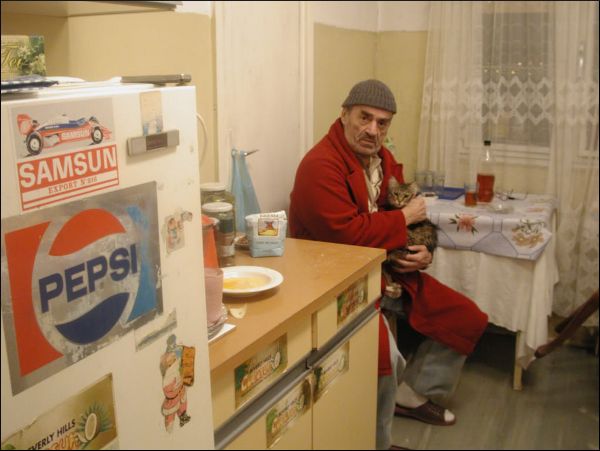Moartea domnului Lăzărescu (The Death of Mr. Lazarescu) is a Romanian dark comedy released in 2005. It was directed by Cristi Puiu and was born out of his desire to prove to the National Council of Cinematography (CNC), the chief provider of funding for film-making in Romania, that Romanian directors could make films without its help. The CNC had refused to finance his project, which proved to be a terrible mistake, as the movie went on to enjoy critical acclaim and became the biggest revelation at the 2005 Cannes Film Festival, going on to win numerous awards.
"A gripping human drama that unfolds against the framework of an unsympathetic and callous society."
According to Puiu, the movie is based on the real-life story of 52-year-old Constantin Nica, who was sent to a hospital after falling ill and was abandoned on the street by the paramedic team, a reckless act which resulted in the man’s death. The film itself unfolds against the backdrop of the Romanian health system, telling the story of Dante Remus Lăzărescu, a retired engineer whose health deteriorates while watching TV in his Bucharest apartment. He realizes he’s in serious trouble when he starts vomiting blood and is forced to call an ambulance. On his way to the hospital, the nurse checks Mr. Lăzărescu’s patient history and discovers that he likes to drink, which leads her to the conclusion that he might suffer from colon cancer.

The ambulance takes him to four hospitals before he is finally hospitalized. The first three unwillingly agree to look at Mr. Lăzărescu, and despite the fact that they all agree on the gravity of his situation – to the point that he needs immediate surgery –, they refuse to admit him for various reasons. One hospital has no empty beds, while in the other two, the doctors are too tired or don’t want to deal with an old drunkard. Only at the fourth hospital is Mr. Lăzărescu finally taken in, and there, the doctors discover that the patient has a brain clot as well as a liver neoplasm. They decide to operate on the clot, as the other condition is incurable.
"We get the feeling that Mr. Lăzărescu is always alone, and this is Cristi Puiu’s way of highlighting how flawed we are as a society."
Despite clocking in at well over two hours, the movie is not at all boring, although some might find it unnecessarily long or might be unimpressed with the language, which is mostly medical: “cancer,” “radiografie” (X-ray), “ciroza hepatica” (liver neoplasm), “operatie” (surgery). Outside the medical jargon, the language employed by the characters is contemporary Romanian, devoid of archaisms or regionalisms. However, it is the gripping human drama that unfolds against the framework of an unsympathetic and callous society, as well as the gritty humor and the captivating setting, that will have viewers hanging by the skin of their teeth. One of the most haunting aspects of the movie is Mr. Lăzărescu’s loneliness and isolation, despite the amount of people surrounding him, among them doctors, nurses, and other hospital patients. We get the feeling that Mr. Lăzărescu is always alone, and this is Cristi Puiu’s way of highlighting how flawed we are as a society.





